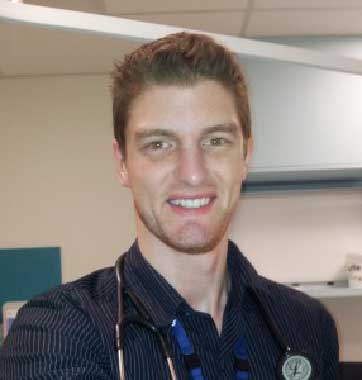Obstructive sleep apnoea (OSA) is a sleep disorder caused by a blockage in the airway. Patients partially or entirely stop breathing many times throughout the night. Commonly, they experience frequent or loud snoring with episodes of silence and then suddenly gasp for breath. Many patients exhibit signs of OSA; while others are unaware of their condition. Snoring and sleep apnoea are closely linked although one can happen without the other.
The stats
Did you know that, in Australia, 25% of men and 9% of women suffer from OSA? This is increasing with the obesity epidemic. OSA is more commonly seen in males than females and the risk increases with age. Research shows that the death rate for patients with OSA increases with the severity of their condition. Sleep apnoea can be categorised into Mild (5-15 events per hour), Moderate (15-30 events per hour) or Severe (more than 30 events per hour). An event refers to an episode of apnoea (complete loss of breath) or hypopnea (partial loss of breath) that lasts longer than 10 seconds.
Risk factors for OSA:
- Obesity
- Age over 40
- Large tonsils, large tongue, small jaw
- Family history of sleep apnoea
- Nasal obstruction due to a deviated septum, allergies or sinus issue
- Large neck circumference
- Cigarette smoking and excessive alcohol consumption
- Medications, especially sedatives at night.
How can Sleep Apnoea affect your health?
Sleep Apnoea can cause restless sleep, waking unrefreshed, morning headaches, excessive daytime fatigue, mood changes, irritability, poor concentration and dry mouth in patients. The constant cycle of disturbance with sleep and breathing cessation can have a detrimental effect on your health by increasing the risk of high blood pressure, obesity, stroke, heart attack, type-2 diabetes, depression, lack of libido, mood disorders, motor vehicle accidents, industrial accidents or even sudden death.
Treatment for Sleep Apnoea
Treating obstructive sleep apnoea can benefit a patient’s overall health and allows them to have a restful sleep. They wake up with better energy levels and improved concentration which then improves work performance and social interactions. A sleep physician can recommend patients to do a sleep study to assess the condition and recommended appropriate treatment options. These include behaviour modification, CPAP machine, oral devices or even surgery in some cases.
How can we help?
Dental professionals are often the first to recognise the signs and risk factors of a sleep-related disorder and can guide you down the right pathway. Dentists with additional training can make oral devices called Mandibular Advancement Splints (MAS). They hold the lower jaw forward to keep the airway open during sleep. They are used in simple snoring, mild OSA and moderate OSA or in severe OSA when patients are intolerant of the CPAP machine.
At Bite we get to see the destructive impact of obstructive sleep apnoea. Our lovely dentist Julia is the resident pro when it comes to sleep dentistry. Her knowledge can help you manage your snoring and sleep apnoea.Come in to Bite and have chat to learn your options for improving your sleep and health!


